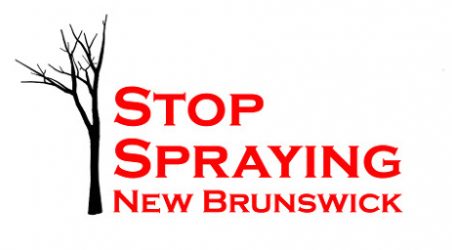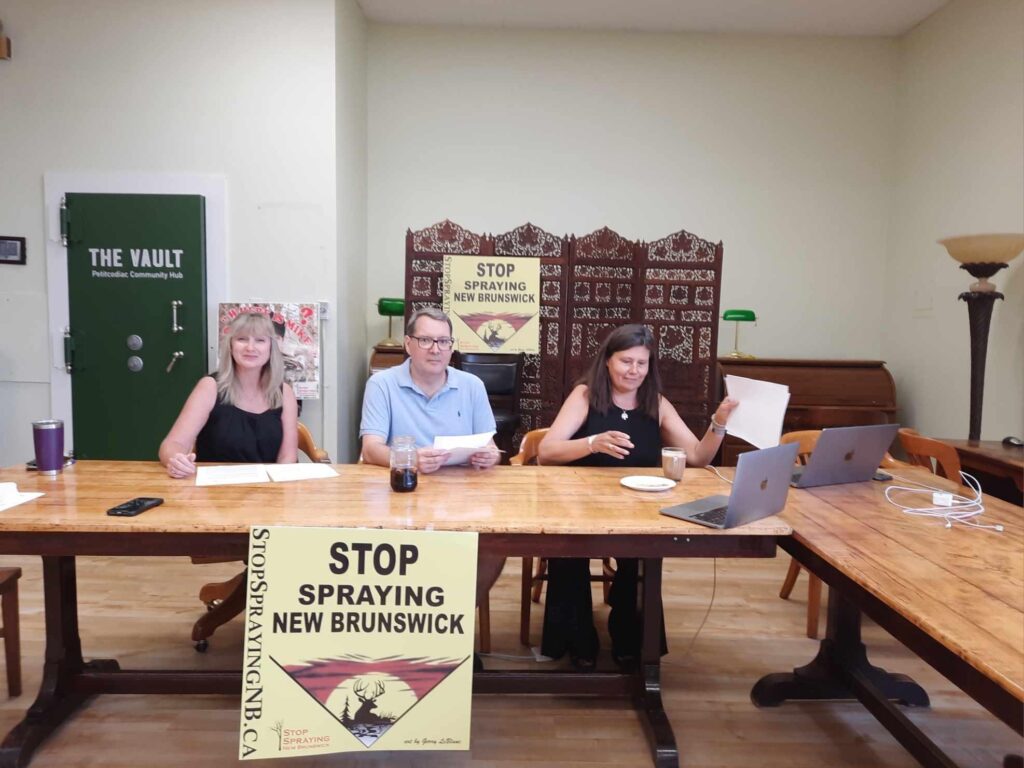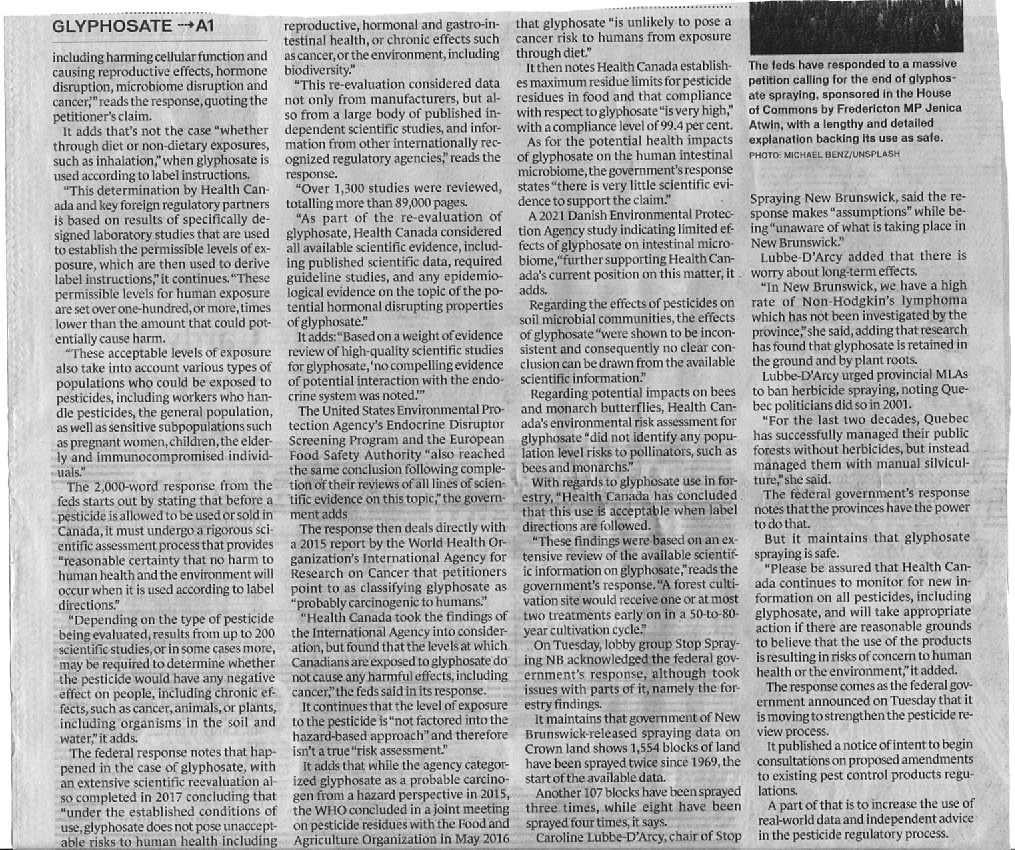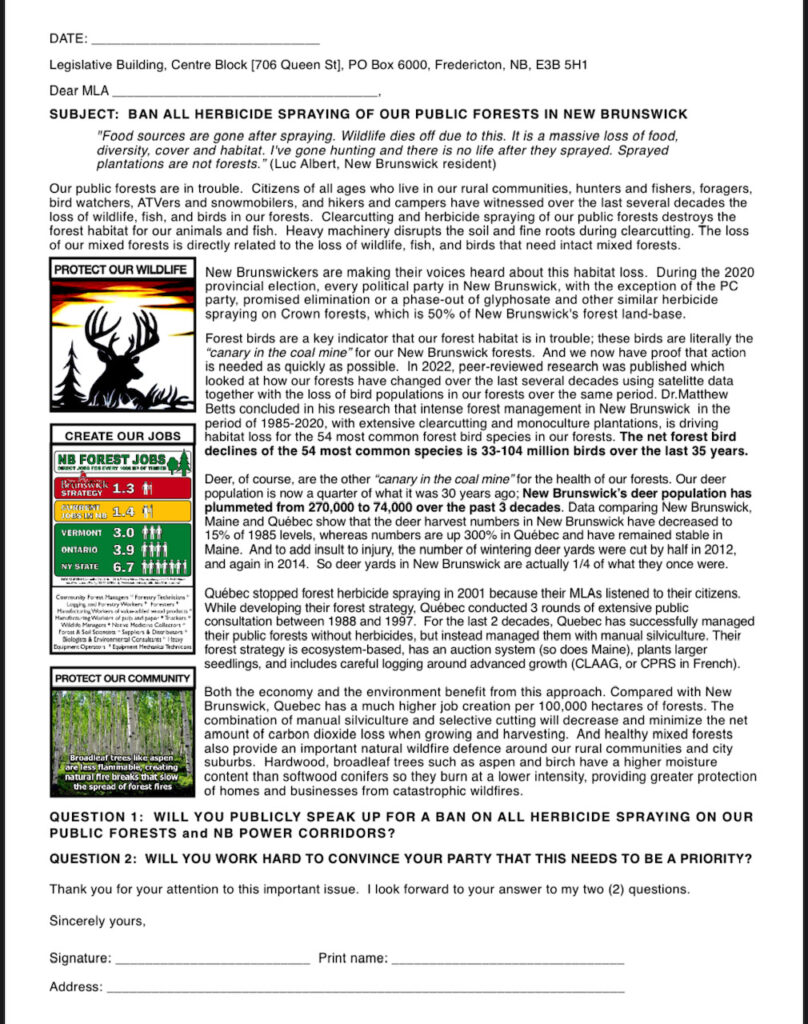
- SSNB’s Historical Herbicide Spray Map (Crown Forests), which syncs with GNB spray data (currently up-to-date until 2022): https://www.arcgis.com/apps/View/index.html?appid=3e6db7d3e2e94169afd915cadf9028f5&fbclid=IwAR2B94E0e9Msa70_KHaBUb6ZtZRO6JwueHzalCdnQZ6ROfGEG_Lb_m7UypQhttps://www.arcgis.com/apps/View/index.html?appid=3e6db7d3e2e94169afd915cadf9028f5&fbclid=IwAR2B94E0e9Msa70_KHaBUb6ZtZRO6JwueHzalCdnQZ6ROfGEG_Lb_m7UypQ
- LINK to the Spray map that shows all the most current forest spray licenses that were issued (2023 for now until new licenses are issued in 2024, at which time this map will automatically update to 2024): https://www.arcgis.com/apps/View/index.html?appid=b3b16d5f435c43168bd759a361401464&fbclid=IwAR1fL2irs8RdnZojcNmFsDYGZfeWFL3tCObS4-GuHEJA1vOtoq-qLNTK74A
- 194 letters were signed at the Moncton Sportsmen Show March 22-24’24! PDF of SSNB’s latest letter template, which you can download, print, sign and send to your MLA:
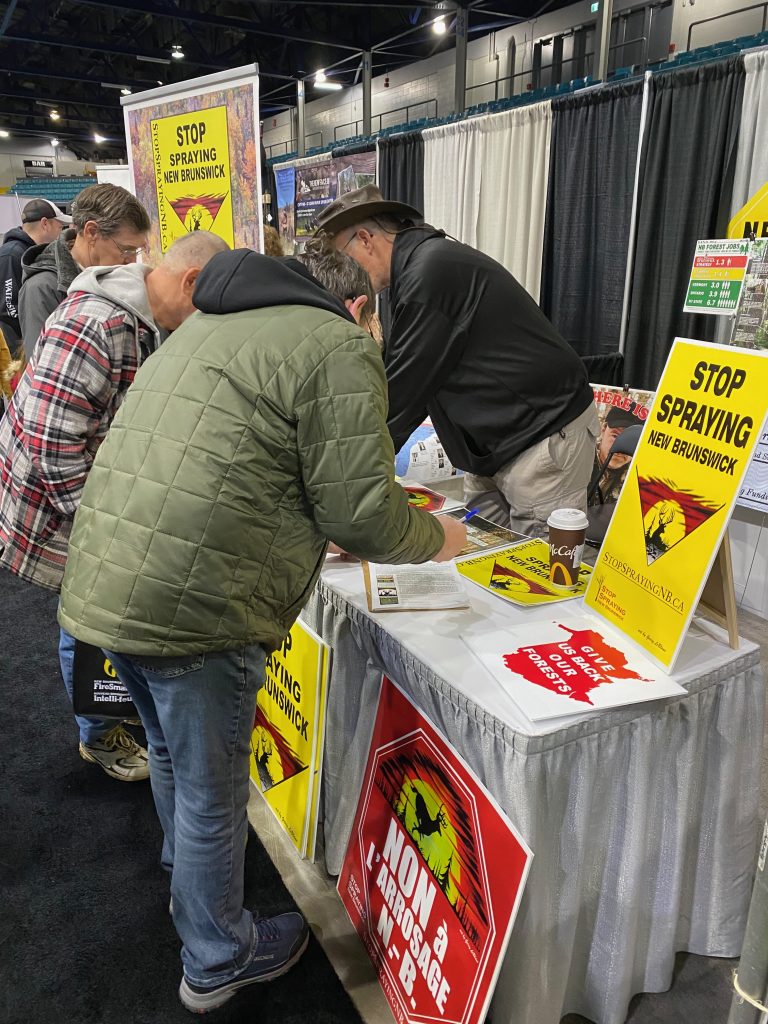
TEXT of this letter:
DATE: _______________________________
Legislative Building, Centre Block [706 Queen St], PO Box 6000, Fredericton, NB, E3B 5H1
Dear MLA ____________________________________,
SUBJECT: BAN ALL HERBICIDE SPRAYING OF OUR PUBLIC FORESTS IN NEW BRUNSWICK
“Food sources are gone after spraying. Wildlife dies off due to this. It is a massive loss of food, diversity, cover, and habitat. I’ve gone hunting and there is no life after they sprayed. Sprayed plantations are not forests.” (Luc Albert, New Brunswick resident)
I am writing to you because our public forests are in trouble. Please do not ignore the problem of our degraded public forests. The loss of wildlife, fish, and birds in our forests, and the loss of forestry jobs, are directly related to the loss of our mixed hardwood forests.
I need to hear answers from you, my MLA, to the following questions. I understand that at last year’s Moncton Sportsmen Show (March 24-26, 2023), a total of 158 letters addressing this issue were signed by constituents from across New Brunswick and delivered to their MLAs. Several of the constituents who signed these letters have reported that they did not receive a response, which indicates that their concerns about herbicide spraying, and wildlife were simply ignored. New Brunswickers concerned about the loss of animals and their habitat in our forests have a right to have their letters answered by their elected MLAs.
Should MLAs be re-elected if they don’t want to answer questions from their own constituents?
QUESTION 1: WILL YOU PUBLICLY COMMIT TO A BAN ON ALL HERBICIDE SPRAYING ON OUR PUBLIC FORESTS and NB POWER CORRIDORS?
The Province of Québec has been successfully managing their forests for the last two (2) decades without the use of herbicides. Quebec uses manual silviculture, plants larger seedlings, and practices careful logging around advanced growth (CLAAG). Compared with New Brunswick, Québec has a much higher job creation per 100,000 hectares of forests. Québec encourages many different forest companies and small wood producers, including the use of an auction system (as does Maine) and added-value hardwood industries.
QUESTION 2: WILL YOU PUBLICLY COMMIT TO RESTORING THE DEER WINTERING YARDS IN OUR PUBLIC FORESTS?
The number of deer wintering yards were cut in half (1/2) in 2012, and again in 2014. Today, deer yards in New Brunswick are only one-quarter (1/4) of what they once were.
QUESTION 3: WILL YOU PUBLICLY COMMIT TO PROTECTING 30% OF OUR PUBLIC FORESTS BY 2030?
Our neighbours have already made this commitment. Québec will conserve 30% by 2030, and Nova Scotia will conserve 30% by 2030. NB Dept. of Natural Resources recently claimed they are committed to conserving 30% of Crown Forest land but Stop Spraying NB has learned that this includes watercourse and wetland buffers, which will constitute 9% of the 30%. These buffers are in fact mandatory by law and are simply the thin 30-metre-wide strips of vegetation left along rivers, streams, and wetlands when forests are clearcut, sprayed or when land near waterways is developed. These 30-metre-wide strips have never been counted as “conservation forest”, and they should not be. The government of New Brunswick is misleading New Brunswickers. In fact, the government has in fact reduced conservation forest from 23% down to 21%.
Thank you for your attention to this important issue. I look forward to your answer to my three (3) questions.
Sincerely yours,
Signature: __________________________ Print name: _______________________________
Address: _____________________________________________________________________

